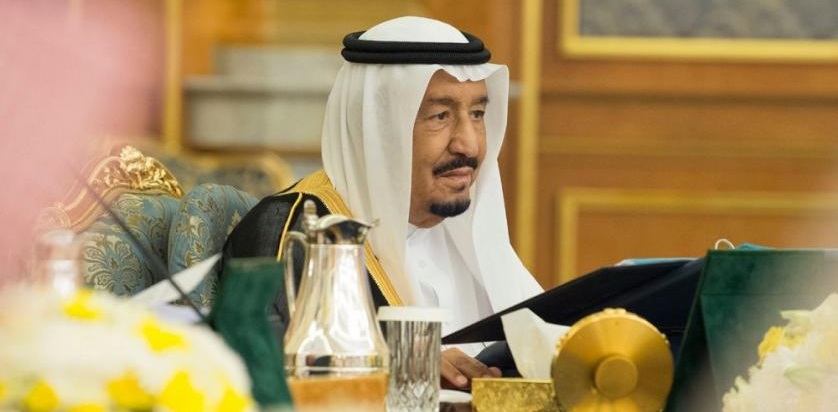Alwaght- On Tuesday and Wednesday, Saudi Arabia hosted a conference on peace in Afghanistan attended by the international Muslim scholars. Reportedly, some 100 senior scholars from variously countries participated in the meeting, held in Jeddah and Mecca.
Afghan High Peace Council has commented on the meeting saying that the participants from Afghanistan did not represent Kabul, but were invited due to their influence and prominence.
The gathering has drawn some criticism and its success is facing serious questions.
Held in Saudi Arabia, arranged by Kabul
Despite the fact that Riyadh has said that it is hosting a conference of the Organization of Islamic Cooperation (OIC) to “discuss ways of contributing to the efforts of achieving peace and stability in Afghanistan”, reports suggest that a considerable part of the expenses are paid and the arrangements are made by the Afghan government.
Mohammad Akram Khpalwak, the head of the peace council, has confirmed the reports of the Afghan government’s hand in the arrangement of the meeting and paying for it.
The conference, however, saw very important figures absent, casting doubt on the credibility of the meeting.
It was meant to discuss peace between the Kabul government and Taliban. But it appears to have digressed from its main path. Reacting to its organization, the Taliban published a statement calling it ceremonial and a show staged by the Americans to distract the public from the main issue which is the occupation of Afghanistan by the US-led coalition.
Neither Iran nor Pakistan, two crucial neighbors of the war-ravaged nation, made a significant representation at the summit. Only a scholar from Pakistan, Qibla Ayaz, a hardly renowned figure, attended the gathering. The absence of the Taliban, as a key party to any potential peace, as well as Iran and Pakistan, questions the validity and success of the conference.
US-organized Saudi summit on Afghanistan
An important issue is the surprise visit of the American Secretary of State Mike Pompeo to Kabul a day before the meeting.
Pompeo visited the Afghan capital on Monday, met with President Ashraf Ghani of Afghanistan, and told him of the US readiness to join the peace process between the Afghan sides. Pompeo’s trip to Afghanistan was the first since he was appointed as US secretary of state late in April. The analysts hold that Pompeo’s meeting with the Afghan leader a day before an Afghanistan delegation traveled to Saudi Arabia signals Washington’s support to Riyadh’s initiatives on the conflict in Afghanistan.
On the other side, the Secretary of State’s trip gives credibility to the Taliban claims that the US is linked to the meeting and which suggest the Americans have coordinated it not the OIC. Riyadh hand in the peace process appears to be problematic. After all, the Saudis are US allies and having in mind that Washington’s strategy is a long-term military presence in Afghanistan, the Saudis are not expected to contribute to peace in a way that will raise questions about the legitimacy of the US-led presence in the war-torn country. In fact, what makes the conference subject to doubt is its arrangement by Saudi Arabia.
Riyadh is top on the list of the parties promoting extremism and backing terrorism in Afghanistan. Saudi-funded Madrasas, or religious schools, to propagate fundamentalism and nurture terrorist militias in the country.
Saudi Arabia is not new to support of armed rebel groups in Afghanistan. Osama bin Laden, the late leader of a-Qaeda terrorist group, referred to this support in part of his writings. He said that Saudi Arabia picked him as its representative to fight the Soviet forces in Afghanistan in the 1980s.
“I camped on the Pakistan border and received fighters from Saudi Arabia and other Arab and Muslim states,” he wrote.
Since the late 1970s, Riyadh embarked on a strategy of backing the takfiri ideology and spreading it as a foreign policy path to gain weight in the region. The policy gives the Arab kingdom a broadly-recognized title: the Salafi terrorism’s godfather.
Even after toppling the Taliban government by the US-led invasion in 2001 and formation of a new Afghanistan government, the Saudis preserved their role in the Central Asian country via boosting ideological groups with affiliation to Wahhabism through founding education centers. An example is the Nangarhar Islamic University. Reports suggest that the oil-wealthy Arab monarchy has spent at least $500 million on the university’s construction and operation.
In the new period, Saudi Arabia has updated its proxies in Afghanistan and is helping the ISIS terrorist group, which has been defeated in its bastions Syria and Iraq and is moving to Afghanistan as its new safe haven. A 2014 email to Saudi Arabia by the then US Secretary of State Hillary Clinton reveals how she warned the Saudi rulers that how their support for ISIS and other extremist factions in Afghanistan will fuel a regional rivalry.
With this track record of the Saudis’ backing for the rebel factions in Afghanistan, optimism about success, and even seriousness, of the two-day peace conference is highly pointless, many experts agree.
Peace is a home matter
The Saudi-hosted Afghanistan peace summit is not the first meeting on the conflict-hit country hosted by a foreign party. Before that, Oman, Pakistan, Russia, and very recently China hosted similar peace conferences. But Taliban sent no representatives to the multi-party talks. As a result, none of them turned out as a success contributing to lasting calm there.
Other than Taliban absence, the non-Afghan nature of the foreign meetings is another factor hampering their coming to fruition. Taliban’s argument is that foreign-hosted conferences are subject to foreign meddling. The group’s view of these meetings is spoiled by a mounting distrust. This reality highlights a basic need: The peace negotiations should be returned to inside Afghanistan and allowed to be purely intra-Afghan.



























